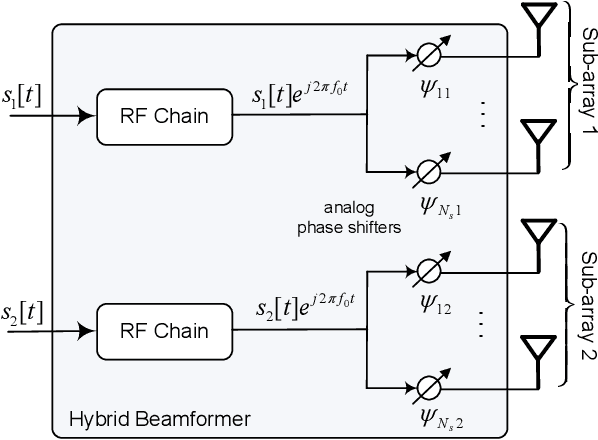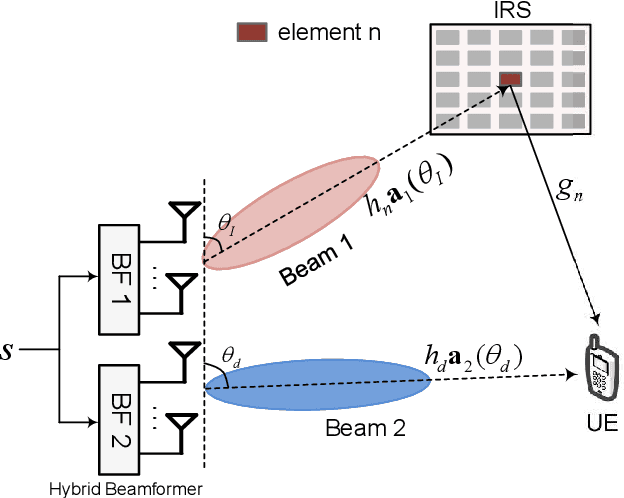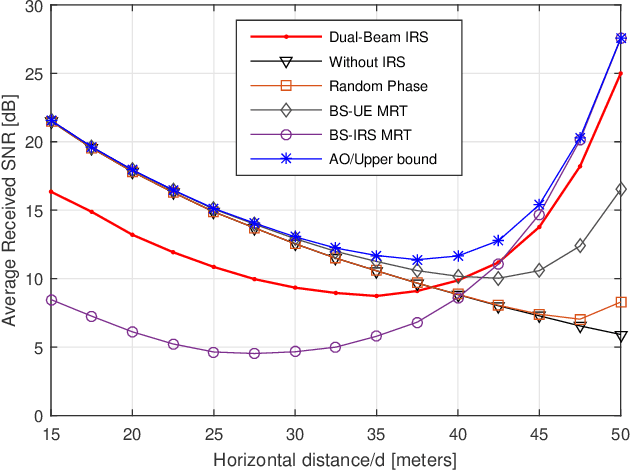Dual-Beam Intelligent Reflecting Surface for Millimeter and THz Communications
Paper and Code
Apr 30, 2022


Intelligent reflecting surface (IRS) is a cost-efficient technique to improve power efficiency and spectral efficiency. However, IRS-aided multi-antenna transmission needs to jointly optimize the passive and active beamforming, imposing a high computational burden and high latency due to its iterative optimization process. Making use of hybrid analog-digital beamforming in high-frequency transmission systems, a novel technique, coined dual-beam IRS, is proposed in this paper. The key idea is to form a pair of beams towards the IRS and user, respectively. Then, the optimization of passive and active beamforming can be decoupled, resulting in a simplified system design. Simulation results corroborate that it achieves a good balance between the cell-edge and cell-center performance. Compared with the performance bound, the gap is moderate, but it remarkably outperforms other sub-optimal schemes.
 Add to Chrome
Add to Chrome Add to Firefox
Add to Firefox Add to Edge
Add to Edge